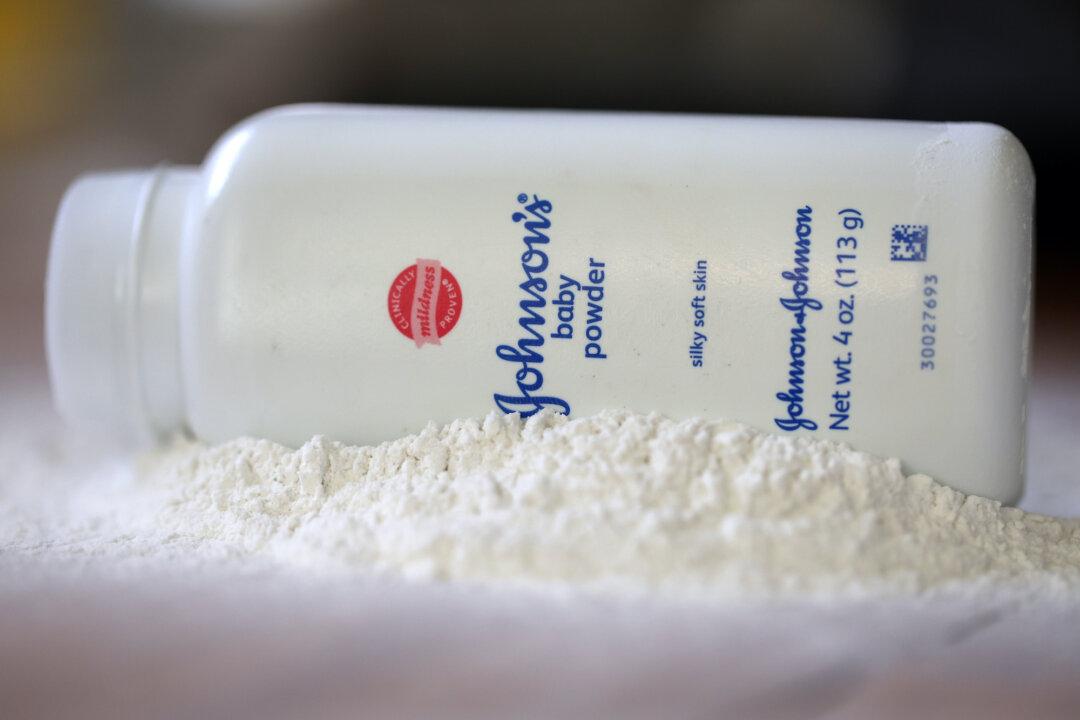A jury in Portland, Oregon, awarded $260 million in damages to a woman who was diagnosed with mesothelioma following alleged exposure to asbestos in Johnson & Johnson’s talc-based baby powder.
Kyung Lee, 49, has been a lifelong user of J&J cosmetic products, according to a press release from her attorneys following the judgment.





